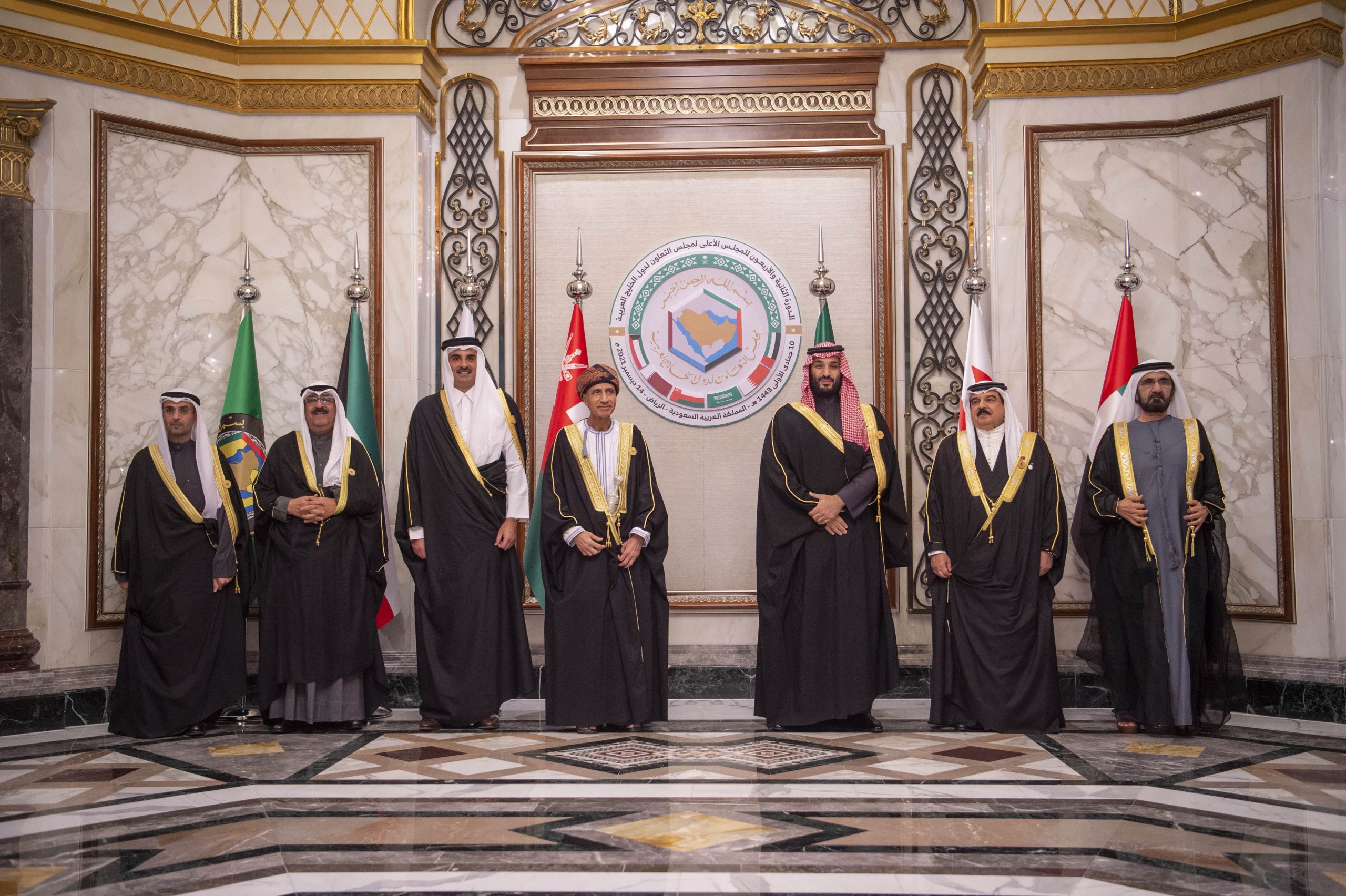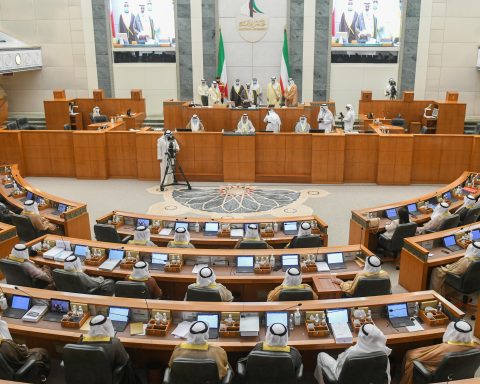In order to listen to the article, click on the audio clip below:
On February 24, 2022, Russia’s President ordered its armed forces to launch a full-scale military operation to invade Ukraine. The Western countries, primarily the European countries and the US, responded by imposing the strongest sanctions yet against any other country. Russia swiftly rose to become the number one sanctioned nation in the world. Although relatively far from the Gulf region, the war has acquired increasing importance in the decision-making circles in the nations of the Gulf Cooperation Council (GCC). Being one of the world’s richest nations in hydrocarbon resources means that their position vis-à-vis the crisis is critical. For quite some time, European countries have been anxious regarding the possibility of weaponizing the energy card. The fact that they depend vastly on Russia for oil and natural gas imports means they are extremely vulnerable in the case of energy disruptions. This scenario makes the involvement of the Gulf countries in the crisis as an alternative source imperative.
Yet, the energy factor is not the only factor connecting the GCC nations to the crisis. The deep polarization on the international level between the US and its allies on the one hand, and Russia and its friends on the other, has brought them to the light. The general wisdom says that the GCC countries are supposed to take the US position in the crisis, yet the reality turned out to be much more complicated. The crisis revealed the contrasting positions of GCC members, most notably in the case of Qatar, the UAE, and Saudi Arabia. Surprisingly, Qatar and Kuwait were the only two countries visibly standing with Ukraine compared to other GCC members. Moreover, they were the only Arab countries to co-sponsor the UN General Assembly resolution on Ukraine on March 2. The resolution denounced the Russian invasion of Ukraine and demanded that Moscow withdraw its military forces.
There were several explanations for the positions of Kuwait and Qatar. Most observers linked their stance to the assumption that they were working with a US mandate. Special attention was given to the energy factor. In Qatar’s case, experts argue that Qatar has an interest to support the Ukrainian stance because it will have the chance to increase its gas supplies to the European countries. The general idea is that Qatar will compensate Russia’s gas supplies to the European countries in times of disruption following a possible decision by Moscow to cut natural gas supplies.
However, such an assumption runs contrary to the established facts. Despite being a top LNG exporter worldwide, most of Qatar’s gas goes to East Asia in the form of long-term contracts. This leaves Doha with little space to maneuver when it comes to providing a sudden and huge rise in demand by customers in the West. Consequently, Doha cannot compensate for Russia’s natural gas supplies to Europe in case Moscow decides to block the supplies. However, Doha can assist the Europeans, with the help of other gas exporters such as Azerbaijan, Algeria, and others, to diversify their energy imports and lessen their dependence on Russia. Yet, this is mostly a long-term game.
Why Qatar stood with Ukraine should not be a mystery. Although Doha is an ally of the US and a global player in the LNG sector, other factors might have also affected the decision of Doha and pushed it to reveal its position without hesitation. What observers should have given more attention to is that Qatar and Kuwait, apart from being US partners, see themselves as closer to Ukraine due to their historic experiences. As small states sandwiched between much bigger and more powerful countries, both suffered from the aggressive policies of their neighboring countries. Kuwait suffered an Iraqi invasion in 1990, and Qatar underwent a Saudi-led blockade in 2017. Their stance in this crisis is self-reflective and adhering to international laws and norms that prohibit the threat of force or the use of force in the relations between the countries and calling on the warring parties to protect the civilians and solve the issue by diplomatic means.
As for the UAE and Saudi Arabia, they adopted different positions based on different motives. In the UN Security Council, the only representative of the Arab countries, the UAE, abstained in a vote on a resolution condemning Russia’s invasion of Ukraine on February 26. Moreover, Abu Dhabi refrained from describing the Russian aggression against Ukraine as an invasion. In a call that took place between Putin and the Crown Prince of Abu Dhabi, the latter supported the Russian position, and the two parties worked to coordinate positions regarding energy.
In explaining the UAE’s position, one can point out three factors. First, cooperation between Abu Dhabi and Moscow has been growing in the last few years at the economic, diplomatic, and even security levels. The UAE’s policies in Syria and Libya are prime examples. Second, the UAE wanted to condemn Yemen’s Houthis in the UN Security Council, and they could not do this without the support, or at least a neutral position from Russia. Indeed, on February 28, Russia returned the favor and backed a bill condemning the pro-Iranian Houthi militia and imposing an arms embargo on it.
Third, and most importantly, the UAE is not on good terms with the Biden administration. From the Emirati perspective, the Biden administration marginalized Abu Dhabi and elevated its Gulf rival, Qatar, at its expense. Doha now is playing greater regional and international roles compared to the Trump administration era. Ironically, both the UAE and Russia were accused of supporting Trump’s campaign before he became president in 2017.
The pro-Russian Emirati position has brought a lot of criticism to the country that is supposed to be a US ally. Feeling the heat, Abu Dhabi tried to water down its position at a minimum cost by endorsing a UN General Assembly resolution condemning Moscow. Furthermore, the UAE announced it would push the Organization of the Petroleum Exporting Countries (OPEC) to pump more oil into the market to reduce skyrocketing prices. Yet, it is far from being guaranteed that Abu Dhabi will actually work for that, not to mention its demand might be challenged.
As for Saudi Arabia, it did not endorse the position of the US in the Russia- Ukraine crisis, avoiding commenting on the Russian invasion of Ukraine, and refusing to pump more oil into the market. Moreover, Riyadh affirmed its commitment to the OPEC+ deal with Russia, which was understood as support for Russia’s position. During the last few years, Saudi-Russian relations developed at a rapid pace. However, this was not the primary factor in Saudi calculations regarding the Russia-Ukraine crisis. Although Riyadh welcomes high prices of oil, the Saudi position in this crisis stems from the personal position of Crown Prince Mohammad bin Salman (MBS).
Since Joe Biden became US President, he has snubbed MBS and even refused to talk to him. In this sense, the Saudi Crown Prince considered the Russian invasion of Ukraine an opportunity to put pressure on the US administration. By refusing to increase the price of oil in the market, MBS thought that he would force Biden to change his behavior. However, the latest US moves towards Iran and Venezuela suggest that MBS’ plans might backfire. In return for its oil, the Biden administration signaled openness to ease sanctions on Venezuela. Considering the looming nuclear deal with Iran, if Washington secured a deal with Tehran, then MBS’ refusal to increase oil output would indirectly benefit Iran. The Crown Prince’s image might even bear more damage in the US and European capitals. Yet, whether MBS will change his mind soon on this issue will remain to be seen.













